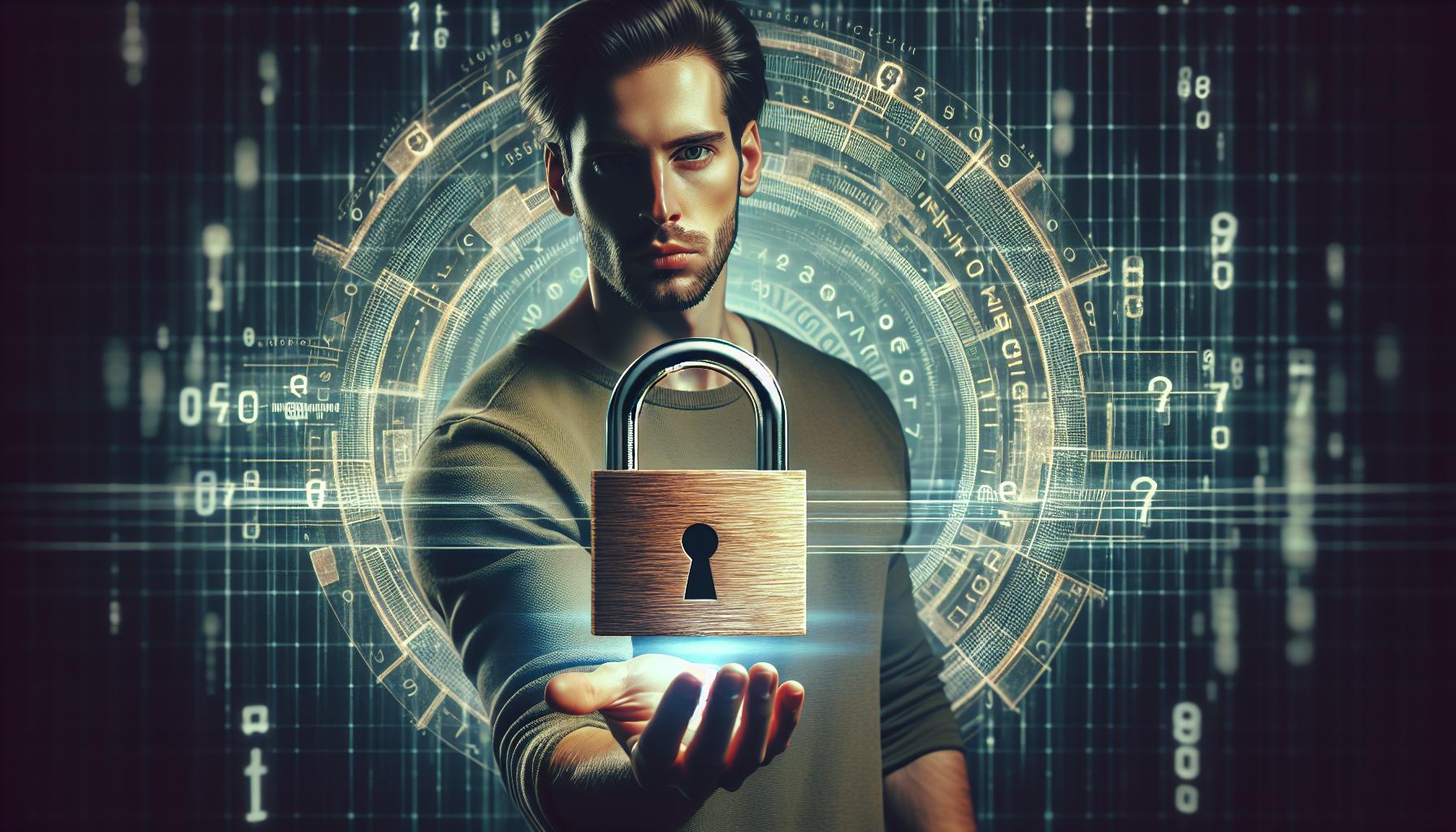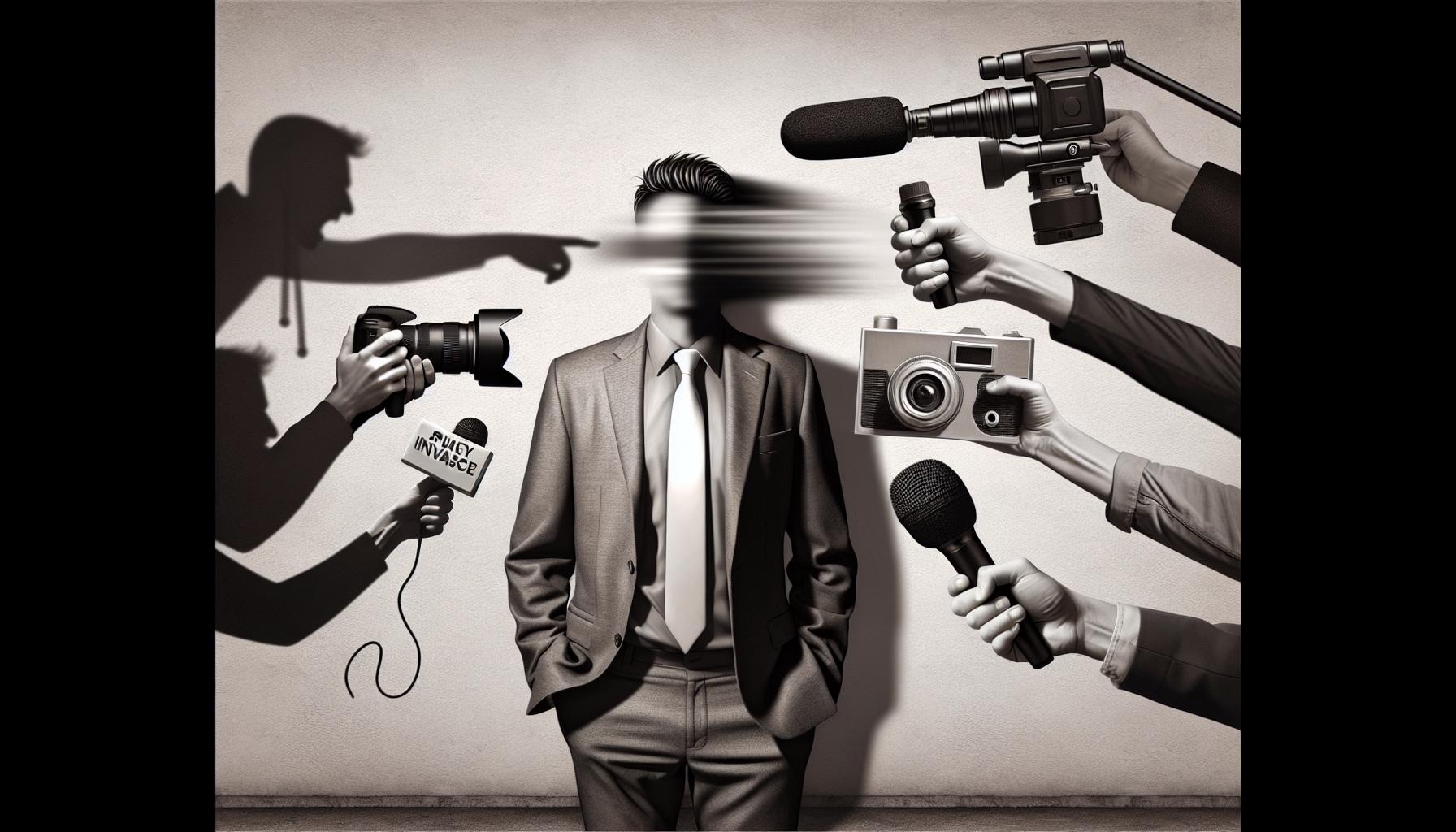Exploring the controversial topic of leaked celebrity nudes is always a delicate matter. Recently, the internet’s been buzzing about Megan Bitchell’s leaked photos, and it’s sparked a myriad of conversations about privacy and consent.
I’ve seen firsthand how the invasion of someone’s personal life can lead to a serious discussion about digital security and celebrity culture. It’s a topic that’s both sensitive and significant, highlighting the need for a respectful approach to such incidents.
The Impact of Leaked Celebrity Nudes
The digital era has brought about unprecedented access to personal content, and in the case of celebrity nudes, this access creates ripples across various sectors of society. I’ve seen first-hand how leaked personal photos can affect not just the individuals involved but also the public’s perception of privacy and consent.
When a high-profile figure like Megan Bitchell experiences such an invasion of privacy, the consequences can be wide-reaching. For one, these leaks often lead to a spike in online search traffic as curiosity drives individuals to seek out the content. Despite the questionable ethics of searching for and sharing these images, it’s an undeniable fact that many see leaked nudes as a form of entertainment.
However, the real-world impact of these leaks can be severe. Celebrities, just like anyone else, have a right to personal privacy and to control their image. Leaked images can damage careers, personal relationships, and mental health. It’s an area I feel requires a renewed discussion about the boundaries of celebrity culture and the digital footprint we all leave behind.
Moreover, the proliferation of such content can have legal implications. There’s a growing legal framework aimed at protecting individuals from revenge porn and unauthorized distribution of intimate images. Organizations like the Cyber Civil Rights Initiative work tirelessly to support victims and advocate for better legal protections.
Let’s not forget the important conversations these incidents spark regarding digital security measures. It’s a wake-up call for many to strengthen their own security practices. Educational resources like the Electronic Frontier Foundation guide users in protecting their digital presence effectively.
I’m striving to paint a clear picture, connecting the dots between these leaks and their broader cultural implications. It’s about fostering an informative dialogue that leads to better awareness and practices in our tech-savvy world. As society grapples with these issues, it’s crucial that we maintain a focus on respect, consent, and ethical behavior online.
Privacy and Consent: A Delicate Discussion
When we type “Megan Bitchell nude” into a search engine, we’re entering a sphere where privacy and consent are often blurred by anonymity and curiosity. The fact that we’re discussing it here is evidence of the uncomfortable reality of how leaked images spark widespread interest. This isn’t just about a momentary lapse in judgment or a breach of personal data; it’s about understanding the seriousness of consent.
In my days of exploring the implications of digital privacy, I’ve come to realize that personal photos and videos should always be controlled by the person who appears in them. The Consent and Coercion in digital spaces is not to be taken lightly. Without explicit permission, sharing someone else’s intimate images isn’t just ethically wrong—it’s a clear violation of their privacy. I’ve found the Electronic Frontier Foundation to be a reliable source on this topic, detailing why it’s crucial to respect digital consent.
Digital consent is something I’ve learned isn’t as straightforward as it seems. There are complex layers involved, often compounded by legal nuances. I’ve read extensive resources, such as those provided by Cyber Civil Rights Initiative, highlighting the serious consequences faced by those whose images are shared without consent. They call it ‘revenge porn’, but I argue it amounts to digital abuse, impacting victims’ mental health, employment, and personal relationships.
I’ve also explored how enforceable these privacy laws are. While the legislation evolves to combat these violations, the reality is that legal action can’t always undo the harm. What we need is a cultural shift, where respect and understanding underline interactions online, much like we expect in real life.
Let’s think about how everyday actions—like sharing, commenting, and even searching—can perpetuate a cycle of disrespect. Let’s choose to be a part of the solution by fostering an internet culture that champions privacy and informed consent, reinforcing the belief that personal boundaries should never be crossed without explicit permission.
Megan Bitchell’s Leaked Photos: Unveiling the Controversy
There’s a storm brewing on the internet, and its epicenter is the controversy surrounding the leaked photos of Megan Bitchell. What should’ve remained personal became public, sparking debates across various online platforms. Far from just a scandal, this incident raises critical questions about privacy violations and the risks associated with digital content.
When Megan Bitchell’s photos were leaked without her consent, search queries skyrocketed. Yet, the increased attention did not just lead to mere gossip; it highlighted the darker side of internet fame. Victims of such invasions of privacy often find themselves in a vortex of public scrutiny, judgment, and unsolicited attention. Besides, these actions aren’t just morally reprehensible; they’re often illegal. Organizations like the Cyber Civil Rights Initiative provide important resources for victims and advocate for stronger laws against non-consensual pornography, making it clear that the repercussions of sharing intimate images without consent can be lifelong.
Digital privacy is intricate, and, despite the existence of stringent laws, violations continue to emerge. Megan Bitchell’s case acts as a chilling reminder. It’s not just celebrities who are at risk; anyone with a digital footprint can have their privacy invaded. This underlines the necessity for all of us to understand digital consent, recognize the gravity of privacy breaches, and secure our own digital assets. For many, this involves relying on online security measures, such as using strong passwords and two-factor authentication—standard practices recommended by authorities like the Electronic Frontier Foundation.
Awareness and empathy are vital as we navigate the complexities of our increasingly digital lives. While the situation surrounding Megan Bitchell remains in the public eye, it serves as a stark example of the need for cultural progress toward a more respectful and privacy-conscious online world.
Exploring the Dark Side of Digital Security
In today’s interconnected world, we place immense trust in digital security measures to protect our personal data. However, the incident involving Megan Bitchell’s leaked nudes starkly reveals the vulnerabilities that persist even with advanced technologies. As someone who’s been following the development of cyber protection closely, I’ve seen first-hand how technological safeguards can be circumvented by determined hackers.
The stark reality is that digital security isn’t infallible. When personal images are maliciously exposed, it doesn’t just spotlight the technical flaws; it underscores a harrowing disregard for privacy. It’s no secret that compromised systems allow for intrusion into what should be inviolable personal spaces. The ease with which personal data can be accessed and shared is, frankly, chilling.
- Unauthorized access of sensitive data
- Inadequate preventative cybersecurity measures
- The need for rigorous digital security protocols
The rise in cases of leaked personal images calls for a critical evaluation of not only our online habits but also the security infrastructure of digital platforms we use. Cybersecurity experts stress the importance of robust encryption and vigilant digital practices. In fact, reviewing the guidelines provided by the Cybersecurity and Infrastructure Security Agency is something I recommend to my readers to strengthen their digital defenses.
But it isn’t just about technology. It’s about establishing a culture of digital respect and adherence to privacy norms. Online platforms must prioritize user security, designing systems that protect against unauthorized data breaches. Awareness campaigns, like those from the Electronic Frontier Foundation, play a pivotal role in educating individuals about their digital rights and how to safeguard their online presence.
Moreover, personal accountability in digital transactions is crucial. It’s wise to be discerning with whom and where we share intimate details of our lives. In the aftermath of a privacy violation, the focus is often on the invaded party, but the spotlight should equally be cast on the perpetrators and enablers of such acts.
Celebrity Culture and the Invasion of Personal Life
In the bustling world of celebrity culture, the line between public image and private life has become increasingly blurred. My observations lead me to believe that fans often feel entitled to every aspect of a celebrity’s life, leading to an invasive scrutiny that disregards personal boundaries. This disregard can culminate in alarming incidents such as leaked personal photos which constitute a profound invasion of privacy.
**Privacy and Respect **should be inherent to all, irrespective of one’s status in society. Yet, individuals like Megan Bitchell suffer when intimate details and images are thrust into the public domain without consent. It’s a stark reminder of the vulnerabilities that come with public life and an indicator of societal attitudes toward ownership of one’s body and image. This narrative of entitlement to celebrities’ personal lives also reflects broader issues regarding consent and digital ethics.
Digital arenas, by their very nature, offer Illusory Anonymity that can embolden nefarious activities. The sense that one can hide behind a screen often leads to actions that they might not consider in face-to-face interactions. This distance creates a disconnect between actions and their human impact, causing harm that spirals far beyond the digital world.
Online platforms, though, are slowly acknowledging their role and taking steps to safeguard the private lives of users. Initiatives are emerging that strive to respect the rights of individuals and work to draw a clearer line between what is public and what should remain private. The hope is that the collective efforts of technology companies, along with legal advancements, will foster a more respectful digital landscape. For insightful perspectives on how digital platforms are adapting, resources like the Electronic Frontier Foundation offer valuable information.
As I continue to delve into the topic, I realize the paramount importance of cultural shifts and Updated Legislations to address the complexities of privacy in the digital age. An emphasis on empathy, combined with the right legal frameworks, could lead to a society where privacy invasions, like leaked nudes, become relics of the past.
Conclusion
Navigating the digital age demands a delicate balance between openness and privacy. As I’ve explored, the violation of personal boundaries through leaked images is not just a celebrity issue—it’s a human one. It’s crucial for us to foster a digital environment where respect and empathy are the norm, not the exception. Let’s advocate for stronger protections and ethical standards that honor individual privacy. Together, we can create a safer, more considerate online world.
Frequently Asked Questions
What are the consequences of leaked celebrity nudes?
Celebrities who suffer from leaked nudes face not only immense personal violation but also long-term professional and social backlash. This invasion of privacy can lead to severe emotional distress and damage to their public image.
How does the public contribute to the invasion of a celebrity’s privacy?
The public often feels entitled to every aspect of a celebrity’s life, leading to invasive scrutiny and a disregard for personal boundaries. This behavior feeds into a cycle of privacy invasion.
What vulnerability comes with a celebrity’s public life?
Being in the public eye exposes celebrities to a lack of privacy and the risk of personal information, such as nude photos, being shared without consent. Such vulnerabilities are a harsh reality of modern fame.
Can digital platforms protect the private lives of individuals?
While some digital platforms are making efforts to safeguard privacy, the effectiveness varies. There is a call for stronger protections and updated legislation to better defend individuals’ private lives online.
What cultural shifts are needed to address privacy in the digital age?
A more respectful digital landscape is necessary, together with a cultural shift that understands and respects personal boundaries and privacy, both for celebrities and the general public.


